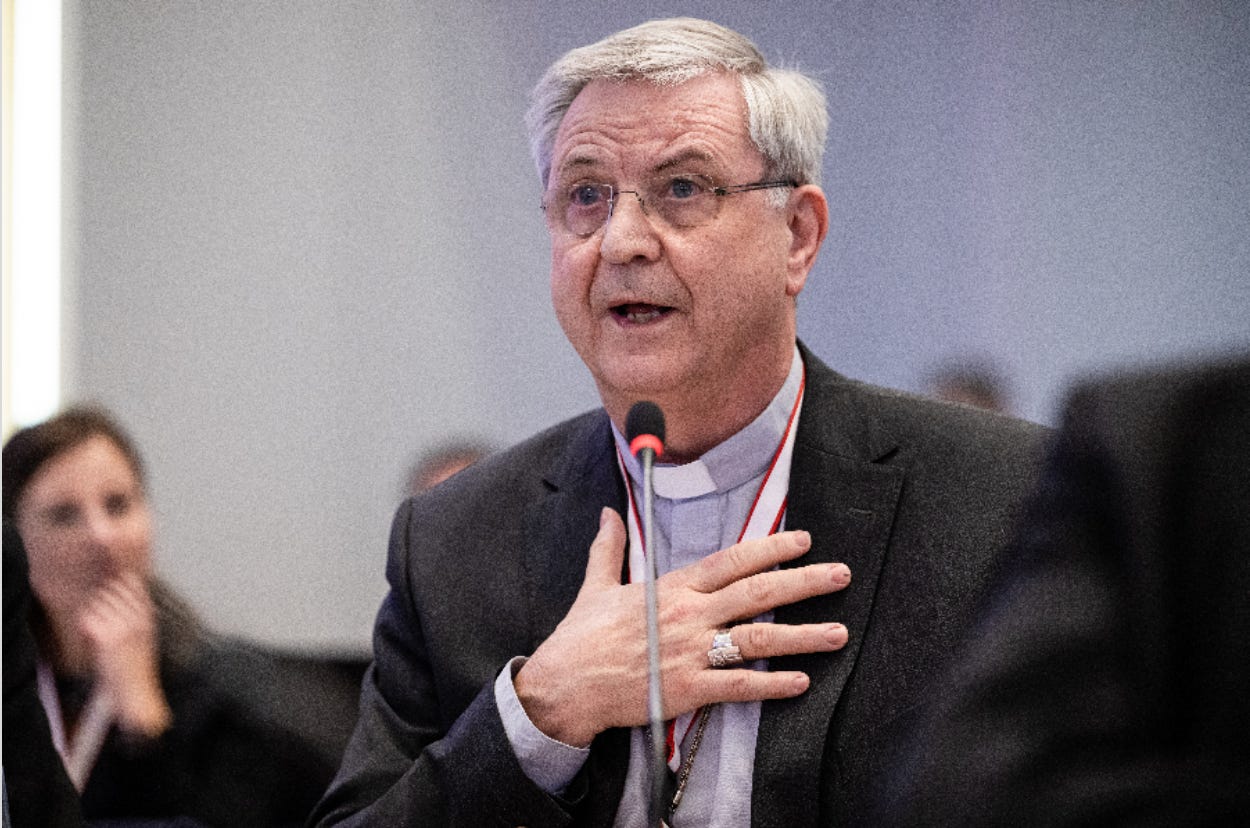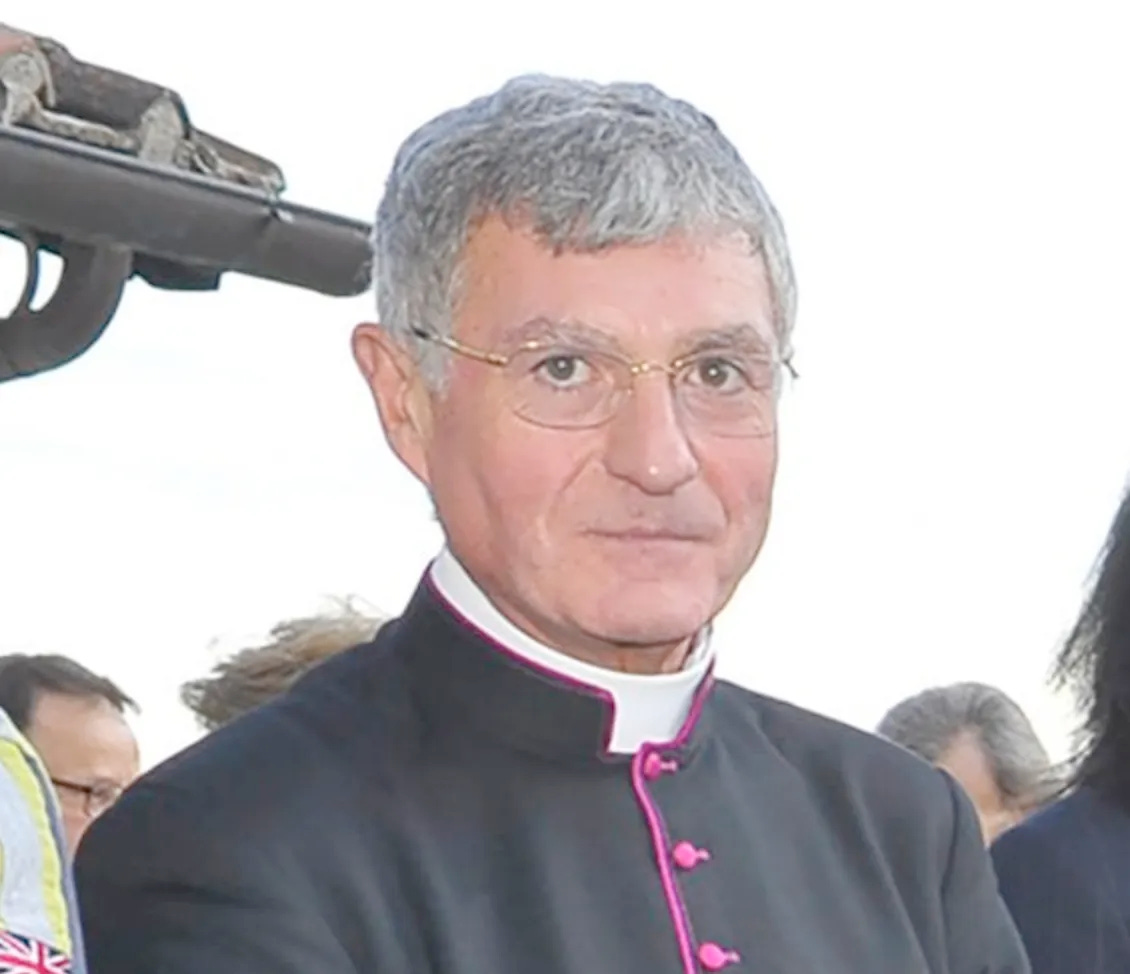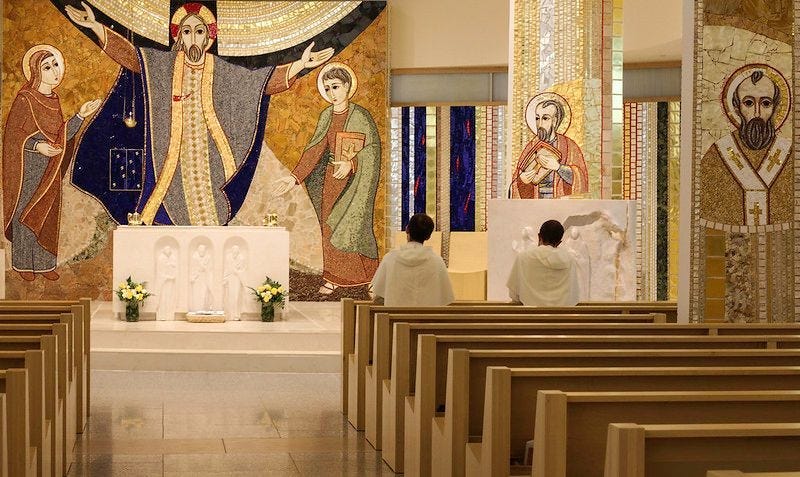Immediately before participants in Germany’s “synodal way” voted in favor of same-sex blessings last Friday, they received a pep talk from a bishop in a neighboring country.
Belgium’s Bishop John Bonny described how the country’s Flemish bishops came to publish a text allowing for a ritual blessing of same-sex couples last September.
When the bishop of Antwerp finished his address, which overran the two minutes allotted to speakers, synodal way members warmly applauded him.
A moderator thanked Bonny, describing him as “a wonderful guest.”
“You talk to our conscience. You talk to our way of thinking. And that was really enriching,” he said.
Synodal way participants then voted by an overwhelming margin to formally adopt the text “Blessing ceremonies for couples who love each other,” which calls on German bishops to “officially allow blessing ceremonies in their dioceses for couples who love each other but to whom sacramental marriage is not accessible or who do not see themselves at a point of entering into a sacramental marriage.”
While Bonny appeared to be encouraging a “yes” vote, his speech didn’t actually include an explicit endorsement of the German text. Indeed, his address served to highlight some important differences between the Flemish and German approaches to same-sex blessings.
These differences could prove significant in the coming months, potentially leading to contrasting responses from the Vatican, which declared in 2021 that “the Church does not have, and cannot have, the power to bless unions of persons of the same sex.”
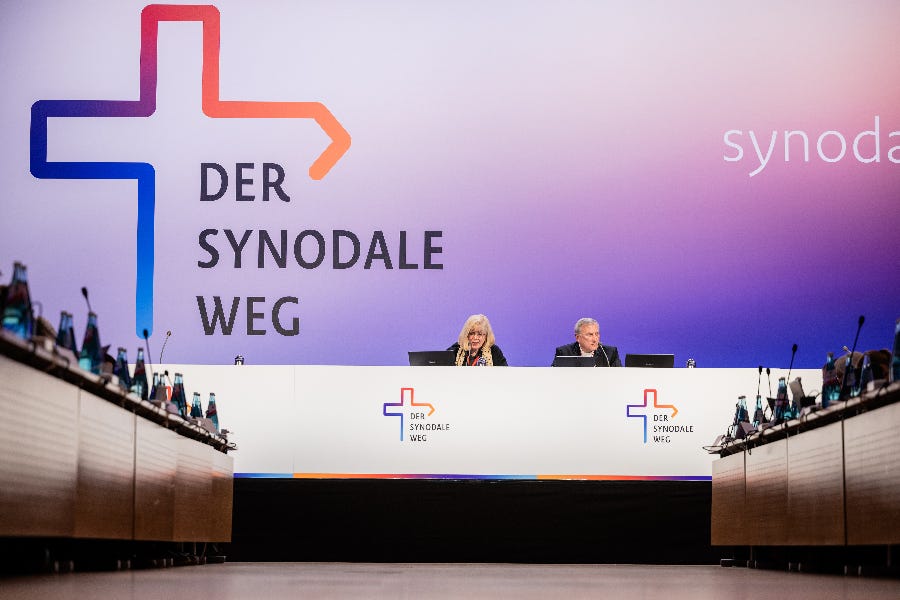
The Flemish path
Bonny’s speech offered candid insights into how the Flemish bishops shaped their same-sex blessings text.
He began by saying that the document, “Being pastorally close to gay people: For a welcoming Church that excludes no one,” went through four stages.
First, the Belgian bishops’ conference devoted two days exclusively to studying Pope Francis’ 2016 apostolic exhortation Amoris laetitia. The bishops asked what they could do for three groups — same-sex couples, civilly remarried couples, and unmarried couples who live together — in light of the document.
Second, the bishops held a series of “personal, private” talks with interested parties, including in Rome.
Third, the bishops slimmed down a draft text to two and a half pages. Bonny said that at this stage, the document was adopted unanimously by Belgium’s bishops, including those in French-speaking parts of the country. The text would be adapted for each diocese but the essential content would remain the same, he explained.
The Flemish bishops — a subsection of the Belgian bishops’ conference — then decided to publish a Flemish-language text together, so that local Catholics weren’t tempted to contrast one bishop’s guidelines unfavorably with another’s. The Flemish bishops published their joint document in September, “and then there was silence,” Bonny said, to applause from synodal way members.
Fourth, Belgium’s bishops made their ad limina visit to Rome in November, a week after the German bishops’ trip. Bonny suggested that Vatican officials were “really open-minded.”
“Everybody said that this is an important matter and it’s your bishops’ conference, it’s your decision,” Bonny recalled, according to an interpreter translating his speech from German to English on the synodal way’s live stream.
“So the pope neither said yes nor no,” Bonny continued. “He said: ‘It is your area of responsibility. It’s your domain.’ And that’s what we saw in September and November, that we did what we from a pastoral point of view are supposed to do in our country now. That’s the current reality, pastoral reality as well.”
Bonny said that the Flemish bishops’ text, which was “not a booklet” but just a handful of pages, had a few key sections.
The first called for a “pastoral worker for queer persons” in each diocese, who would together form an inter-diocesan working group. “So a permanent form of pastoral [work] was established,” the bishop said.
The second notable part contained two short quotations from Amoris laetitia, sections 303 and 297. “They are not about queer couples but about conscience and discernment. This is the foundation of our text,” Bonny explained.
The final part addressed the possibility of a blessing. This section, headed “Prayer for love and faithfulness,” suggested a possible structure for a ceremony taking place in the presence of a community, but underlined that “the difference should remain clear with what the Church understands by a sacramental marriage.”
“It’s a bit to help the Vatican, because it says it’s not the sacramental marriage, it’s something new,” Bonny said, according to the synodal way translator. He stressed that the Flemish bishops did not offer a “manual,” but only a “short scheme or model” that would be reviewed “after one or two years.”
📰
Concluding his address, Bonny said that during the ad limina visit, Belgium’s bishops discussed the document with Pope Francis.
“And again he said: ‘This is your decision. I can understand this,’” Bonny suggested. “What was important for him were two aspects: to continue with wisdom — that’s what we’re always trying, to walk our path with wisdom — and to stick together. He asked me twice: All of you bishops are agreeing? Do you walk the path together? And I said ‘yes.’ So wisdom, discernment, continue together.”
It should be noted that Francis hasn’t commented publicly on the Belgian text and that this was only Bonny’s description of the pope’s views.

The German way
The German path on same-sex blessings appears quite different from the Belgian one when considered in light of the four stages outlined by Bonny.
First, the German text does not seem to have emerged from collective episcopal reflection on Amoris laetitia. The document approved by the synodal way makes only passing reference to the apostolic exhortation.
Second, there appears to be no evidence that the German bishops discussed the text privately with interested parties in Rome before it was drafted by members of the synodal way forum on “Life in succeeding relationships.”
Third, the German document didn’t receive unanimous episcopal approval. The text passed with 38 bishops voting in favor, 9 against, and 11 abstentions. So roughly a third of German bishops have some misgivings about the text. This suggests that German dioceses will go separate ways on same-sex blessings. One is already promoting the ceremonies, while another has indicated that it will wait for a verdict from Rome.
Fourth, the German bishops don’t seem to have received much encouragement during their ad limina visit. Instead, they were presented with pointed critiques of the synodal way by three senior Vatican cardinals.
It’s not only the German text’s genesis that it is different; what it proposes also differs from the Belgian document in terms of form and content.
While the Flemish bishops pared down their text until it was just a “short scheme,” the synodal way text calls for the creation of a blessings manual, in consultation with the German Liturgical Institute. The German document seems to envision a much more formal set of liturgical guidelines than the brief Belgian bullet points, which are embedded in a document about pastoral care.
While the Belgian text speaks somewhat indirectly of blessings, the German manual is likely to be more explicit. The synodal way resolution says that the manual should contain “suggested forms for blessing ceremonies in the context of services of the word or the Eucharist” for “the various couple situations (such as remarried divorcees, same-sex couples, couples after civil marriage).”
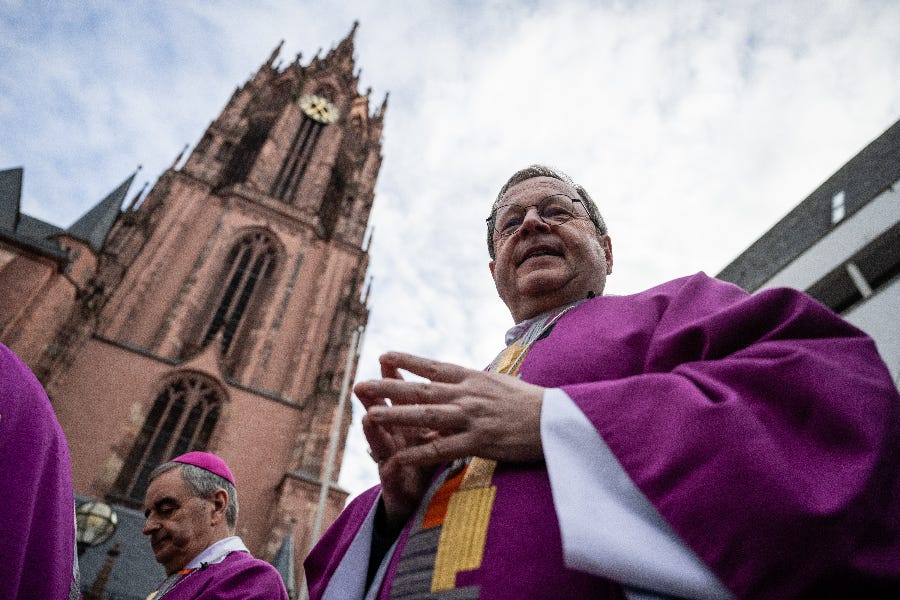
Roman reactions
When the Flemish bishops published their text last September, it was, as Bonny said, greeted with “silence” in Rome. Even after the pope and Vatican officials received the Belgian bishops in November, there was no official comment on the document.
Bishop Jean-Luc Hudsyn, an auxiliary in the Mechelen-Brussels archdiocese, confirmed that the text featured in discussions with dicasteries and the pope, “but by rereading with them our official texts and not what some people wanted them to say,” he said.
The Vatican has continued to maintain its official silence, so it seems plausible that, as Bonny said, the Belgian text is now being used for an experimental period, after which the local bishops will draw some conclusions about “what works best.”
In contrast, a senior Vatican official commented publicly on the German document just days after its adoption.
Secretary of State Cardinal Pietro Parolin told reporters March 13 that the Vatican had already expressed itself clearly on same-sex blessings, referring to the Dicastery for the Doctrine of the Faith’s 2021 intervention.
He said that a local Church “cannot make such a decision that involves the discipline of the universal Church.”
But he also underlined that the Vatican is committed to dialogue with the German bishops over the synodal way — a commitment that German Church leaders say they share.
Parolin’s remark suggests that the Vatican may see the German vote as a threat to Catholic unity. In that case, talks on the topic would be tense.
Perhaps German Church leaders intend to argue that they are simply following their Belgian brothers. But given the considerable differences between the German and Belgian paths, that argument seems unlikely to satisfy the Vatican.

